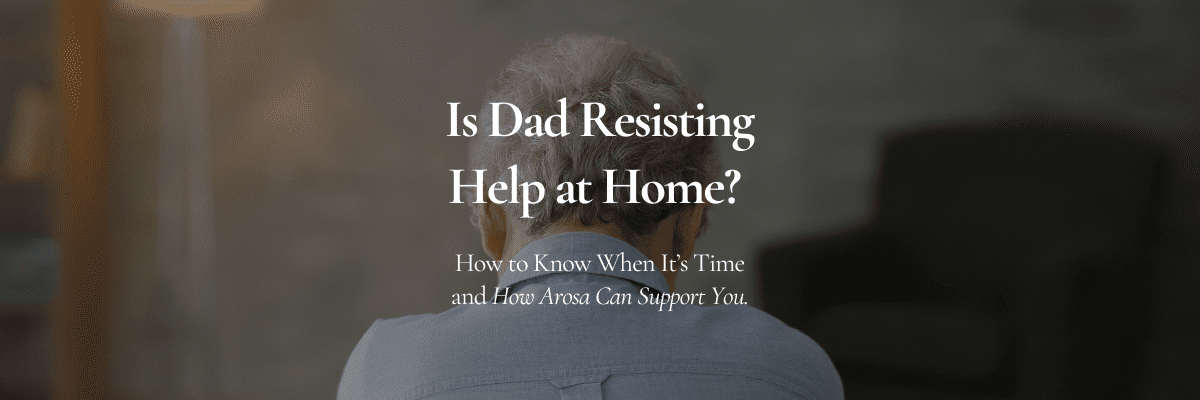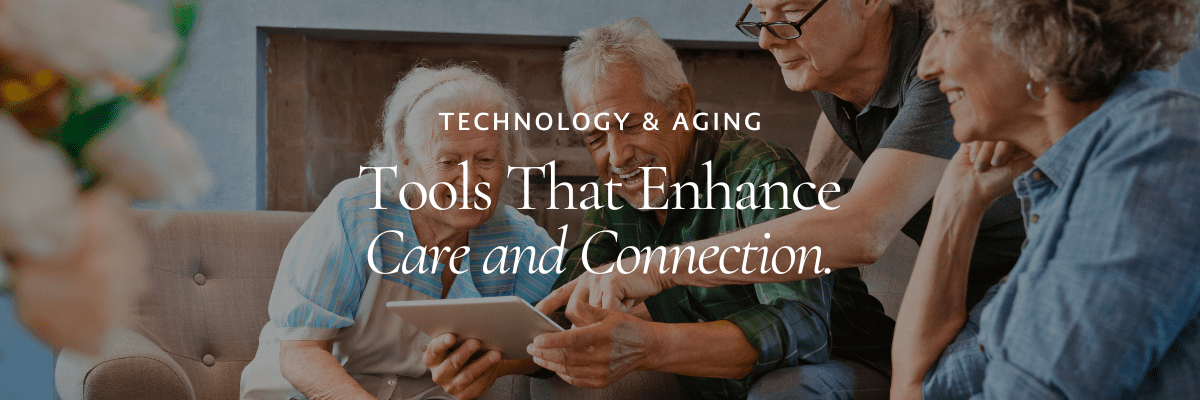Father’s Day is a time to celebrate the dads, stepdads, grandfathers, and father figures who’ve shaped our lives in big and small ways. These are the men who taught us how to ride a bike, balance a checkbook, or drive on the highway for the first time. They showed us how to fix a leaky faucet, cook the perfect mac and cheese, wrap a gift, or stand up for someone who couldn’t stand up for themselves. They introduced us to their favorite music, shared advice we didn’t always ask for, taught us how to lace up cleats, parallel park, change a diaper, or simply sit in silence when words weren’t enough. They’ve offered us wisdom, protection, and love — even if they didn’t always say it out loud.
So when the signs of aging start to show, it’s no surprise that many of our dads struggle to admit they might need help. After all, they’re used to being the help — the fixer, the provider, the one everyone else leaned on.
If your dad is brushing off your concerns or insisting he’s “just fine,” you’re not alone. It’s incredibly common to face an elderly parent refusing help, especially when they’ve spent their lives as the ones others rely on. Many older men, especially those who have lived independently or led families, find it difficult to accept support. The idea of receiving care might feel like giving up control or admitting weakness, neither of which comes easily. But as adult children, we carry a different kind of responsibility: to protect our parents as they once protected us. And knowing when and how to step in can make all the difference for his safety, dignity, and your own peace of mind.
5 Signs Dad Might Need More Support at Home
Even if your father doesn’t directly ask for help, his behavior might be telling you something he isn’t ready to say out loud.
1. Household tasks are slipping.
If you’ve noticed laundry piling up, expired food in the fridge, dishes sitting in the sink, or unpaid bills collecting dust, these are often the early warning signs. They can point to physical limitations, memory issues, or simply an overwhelmed mind.
2. He’s had recent falls or close calls.
Even a minor trip or stumble can be significant. Difficulty navigating stairs, getting in and out of bed, or hesitating when walking on uneven surfaces can suggest mobility issues that increase the risk of serious injury.
3. Personal hygiene is declining.
If your dad is wearing the same clothes for days, skipping showers, or not shaving like he used to, it may be more than forgetfulness; it could indicate physical pain, depression, or early cognitive decline.
4. He’s withdrawing from things he once enjoyed.
A decline in social engagement, like skipping church, not returning phone calls, or abandoning hobbies, can be a sign of loneliness, memory trouble, or emotional distress. Isolation often accelerates both mental and physical decline.
5. He’s missing medications or appointments.
Forgetting to take medications, getting confused about dosages, or missing doctor appointments could be a red flag that his executive functioning is being impacted, something that needs immediate attention.
5 Signs You Might Be Burning Out
Often, it’s not just your dad who needs support — it’s you. When adult children take on the role of caregiver, it usually starts small: picking up groceries, organizing pills, and making a few phone calls. But over time, that care load can grow heavier and harder to manage, especially if you’re also juggling work, parenting, or your own health.
Here are five signs you may be reaching a breaking point:
1. Constant exhaustion, even after rest.
You’re sleeping, but never feeling rested. You’re running on empty more days than not.
2. Irritability or emotional overwhelm.
You find yourself snapping at loved ones, crying easily, or feeling numb. Your emotions are close to the surface, and you’re not sure how to reset.
3. Neglecting your own health.
You’re skipping doctor visits, living off convenience foods, or ignoring your own aches and pains because someone else always comes first.
4. Guilt or resentment.
You love your dad deeply, but you sometimes feel trapped, frustrated, or guilty that you can’t do more. These feelings are entirely normal, but also unsustainable.
5. Isolation from the rest of your life.
You’ve stopped seeing friends. You’re no longer enjoying the things that once brought you joy. It feels like caregiving has taken over your life.
If any of these sound familiar, it’s time to talk about support, not just for your dad’s sake, but for yours.
How Arosa Can Help — Gently, Thoughtfully, and Over Time
At Arosa, we know that aging isn’t a one-time event. It’s a process that requires flexibility, patience, and a deep respect for the person at the center of it all.
That’s why our approach is holistic. Our Care Managers and Caregivers work together to build a plan that starts where your dad is now and adapts as his needs evolve.
We start gently. No pressure. No judgment.
Dad may need someone to drive him to appointments or prepare a few healthy meals each week. Perhaps what’s needed is more involved care coordination with someone to track his medications, ensure he’s following his doctor’s orders, and advocate for him when you’re unable to be there.
Whatever the situation, we meet your family where you are, offering thoughtful, personalized support through our private senior care services. Just like our client Judy B. writes:
“Living 17 hours away from my dad, I was always worried about how he was doing. But after meeting Miranda from Arosa, I knew he was in good hands. She made my dad and stepmom feel comfortable from the very beginning, and she kept me informed every step of the way. He recently passed, but I’ll always be grateful that he had the best care until the very end.”
We support his independence while giving you the peace of mind that he’s safe, cared for, and not alone. As time goes on, we adjust, adding hours, services, or strategies as needed. We maintain regular communication with you, his healthcare team, and, most importantly, with him. We treat your dad like the person he is: proud, capable, and deserving of care that honors his dignity.
And we help you return to the role you miss most: being his daughter, son, or loved one. Not just his caregiver.
This Father’s Day, Ask Yourself: Is This Still Working?
If the answer is no, if you’re stretched too thin, if you’re seeing the signs and feeling the strain, then it may be time to explore options.
This Father’s Day, take the opportunity to get support, not just for him, but for yourself and your entire family.
Arosa Can.
Click here or call 866-462-7672 to start a conversation. We’re here to help — gently, respectfully, and with your whole family in mind.



